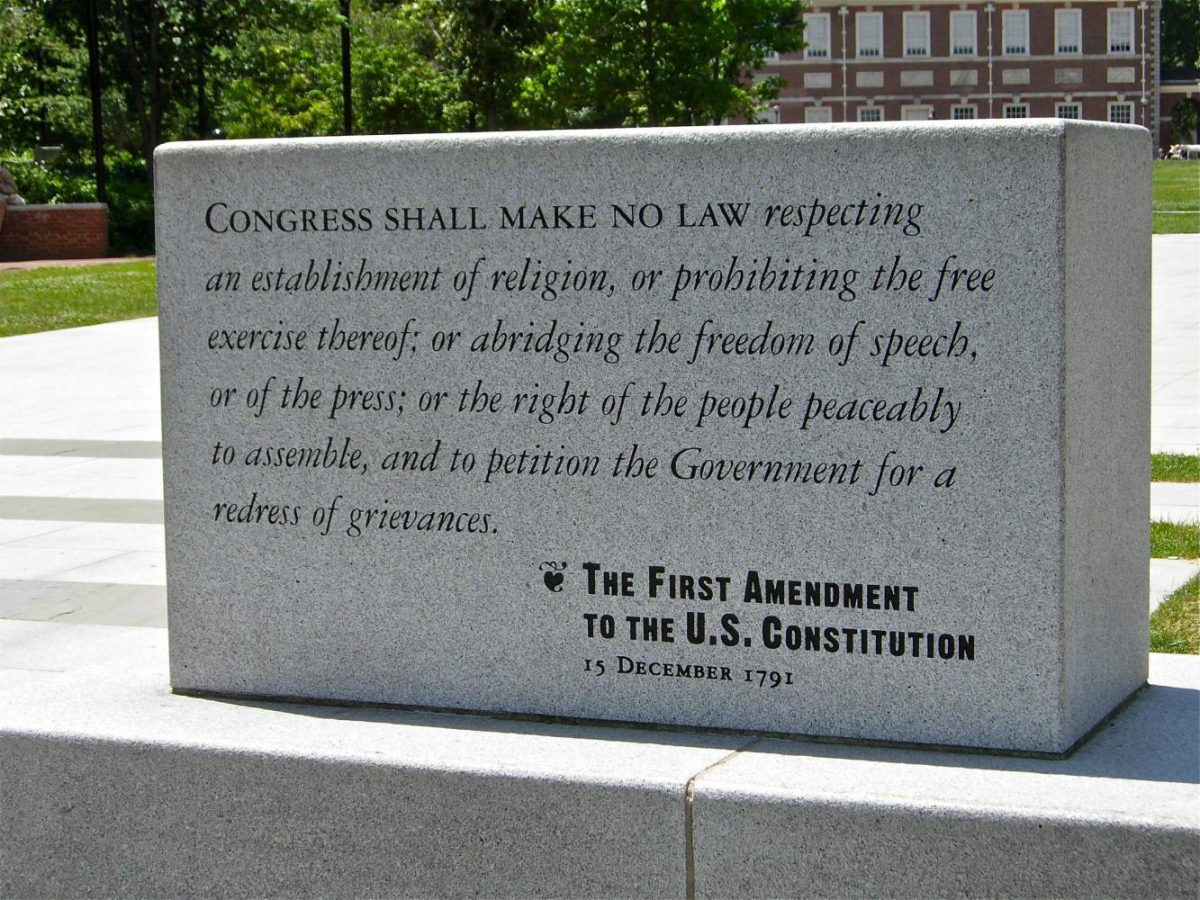Ideas don’t go away if ignored; colleges should give all a voice
“Free speech” means different things to different people, but monuments like this one in Philadelphia remind us that it is everyone’s right.
September 28, 2017
Instead of attempting to suppress alleged extremism, colleges should actively try to teach all hostile and combative philosophies from both sides of the fence so we may learn from them and learn how to refute them.
It is clear based on recent examples that in Europe and America, colleges have not shied away from using de-platforming—the refusal to allow someone to speak—and censorship to silence opinions deemed unacceptable.
One issue with this censorship of allegedly extremist views is the censored speakers are not extremist by any reasonable measure.
Former Secretary of State Condoleezza Rice, for example, was not allowed to speak at Rutgers for her role in the “war on terror,” a bipartisan effort that even President Obama resolutely criticized in a commencement speech he made at Rutgers in 2016.
Contrast this with the treatment given to Imam Siraj Wahhaj, who has been invited to speak colleges such as the University of Central Florida and Queens College in New York.
Wahhaj is an islamic cleric who advocates Islamic law over constitutional democracy and has been supportive of the 9/11 attacks. He converted to Islam from his Baptist upbringing through association with the Nation of Islam, a hate group that combines radicalized Islam with black supremacy. If universities are so concerned about ensuring the safety of their students by not-promoting extremism, then why allow advocates of an ideology that has killed over a billion people?
College de-platforming is not merely the denial of those who fail to pass through the window of acceptable public behavior. It is an active attempt to gain power by shrinking the window as much as possible, down to single ideology.
However, even if it were about extremism, it would still be entirely the wrong approach.
These ideas don’t just go away. The advocates of such philosophies don’t stop believing in their ideals or lose any influence because they are no longer allowed to speak their minds. Instead, they are forced into criminal channels and feel justified in political violence.
Censorship won’t prevent a Charlottesville. Censorship created Charlottesville.
Ideas of any sort should be allowed in open debate, both in a free society in general and in places of higher learning in particular. Even if the ideas themselves can provide nothing of worth, opposition is essential in order to develop and refine your ideas.
And so we can learn about how our enemy thinks.
As Sun Tzu said, “If you know the enemy and you know yourself, you need not fear the result of a hundred battles. If you know yourself but not the enemy, for every victory gained you will also suffer a defeat.”
Unless we learn to understand our enemies and use that knowledge to better understand ourselves, we will certainly lose the war of ideas.
Samuel H. Bergenholtz is a sophomore transfer studies major with a focus in political science.
This story was run in a shortened form in our October 2017 print edition.












